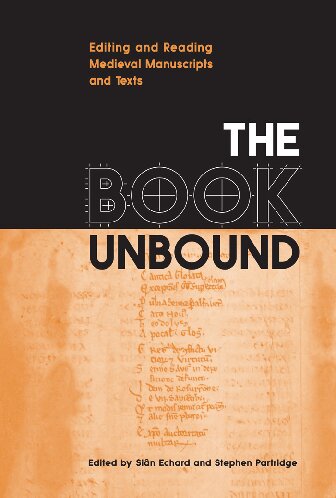

Most ebook files are in PDF format, so you can easily read them using various software such as Foxit Reader or directly on the Google Chrome browser.
Some ebook files are released by publishers in other formats such as .awz, .mobi, .epub, .fb2, etc. You may need to install specific software to read these formats on mobile/PC, such as Calibre.
Please read the tutorial at this link: https://ebookbell.com/faq
We offer FREE conversion to the popular formats you request; however, this may take some time. Therefore, right after payment, please email us, and we will try to provide the service as quickly as possible.
For some exceptional file formats or broken links (if any), please refrain from opening any disputes. Instead, email us first, and we will try to assist within a maximum of 6 hours.
EbookBell Team

4.0
36 reviewsIn "The Book Unbound," scholars and editors examine how best to use new technological tools and new methodologies with artefacts of medieval literature and culture. Taking into consideration English, French, Anglo-Norman, and Latin texts from several periods, the contributors examine and re-evaluate traditional approaches to and conclusions about medieval books and the cultural texts they contain - literary, dramatic, legal, historical, and musical. The essays range from detailed examinations of specific codices to broader theoretical discussions on past and present editorial practices, from the benefits and disadvantages of digital editions versus print editions to the importance of including 'extratextual' material such as variant texts, illustrations, intertexts, and other information about a work's cultural contexts, history, and use. "The Book Unbound" presents important contributions to the discussions surrounding the editing of medieval texts, including the use of digital technology with historical and literary documents, while offering practical ideas on editing print and hypertext. The collection will be invaluable to historians, literary scholars, and editors.